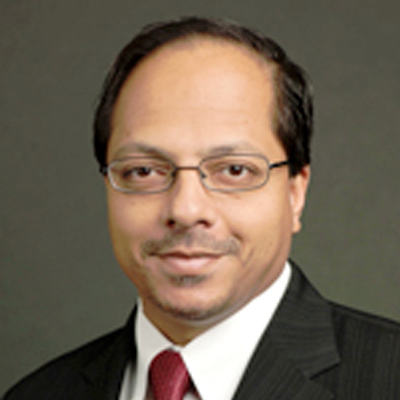Simulated surgeries are improving patient safety in all areas of medicine
The majority of current surgical training still involves introducing novice trainees to patient care and surgery within the real hospital and operating room environment. Over time, we have learned that novices in training are significantly more likely to encounter complications, cause patient discomfort, and have longer procedure times than experienced surgeons for diagnostic and therapeutic procedures, all of which can lead to patient complications. Because patient safety, patient comfort, and patient outcomes must be prioritized, with increasing demands on surgical resident education, early procedural learning must occur in adjunctive environments away from real patients, such as in a well-equipped simulation lab with a mix of high- and low-fidelity training systems. Dr. Aziz Merchant, Assistant Professor of Surgery at Rutgers University’s Medical School, is working to establish an evidence-based program of simulation education for surgical and medical trainees towards improving training and improving patient safety. In short, his research is focused on creating programs that allow residents and students to train to proficiency on a simulated inanimate training model, before treating actual patients.
Day to day investigations involve creating better simulation models for procedures such as laparoscopic surgery (surgery using small incisions) and colonoscopy, as well as team training and interdisciplinary learning in medicine and surgery. Dr. Merchant’s unique approach focuses on improvements in patient safety by establishing a better process for training the medical professionals that take care of these patients, and addresses part of the core problems of patient safety, which is provider education and training. Teaming with other surgical faculty members in diverse fields, Dr. Merchant’s simulations and curriculum can be applied to disparate units in nearly every type of medical practice. In short, Dr. Merchant’s cost-effective, efficient, and robust training modules are likely to be the next generation of resident training.
Current research includes:
-
Educating the Next Generation of Surgeons: Dr. Merchant’s research is, at its core, dedicated to training the next generation of surgeons. Using training modules that allow residents to operate without compromising patient safety and outcomes, Dr. Merchant’s research prevents issues of patient safety before patient safety becomes a problem.
-
Colonoscopies: Colonoscopies are an important screening method for cancers however, they also require specialized training for the surgeons conducting the surgery. Dr. Merchant is studying how to bring such training to clinics affordably and safely. Funded by SAGES, Dr. Merchant’s current research project is developing a low-cost, easily reproducible simulator for colonoscopies. He and his team are developing the simulator in addition to conducting tests to measure its effectiveness.
-
Trainings in Rural Communities: By making simulations inexpensive and easily reproducible, Dr. Merchant hopes to bring necessary surgery skills to the developing world and other rural communities. Dr. Merchant and his team hope to develop inexpensive, easily reproducible simulators and training curricula to afford rural training programs the ability to train providers to operate within their communities.
Bio
With both humbleness and gratitude, Dr. Aziz Merchant describes his experience as a graduate student at the University of Chicago. As a leading institution, Dr. Merchant remembers “the extraordinary level of teaching” he was surrounded by. Given this environment, he explains, he “couldn’t help but wanting to bring that knowledge back to other people after graduating.” Therefore, his passion for teaching has been a constant since joining academia.
It is due to this passion for teaching, coupled with his enthusiasm for the field of surgery, that he has devoted his professional career to the training of medical students, surgical residents, and surgeons using simulation technology. Dr. Merchant believes that simulations are the necessary next wave of resident training as they allow future providers to practice without the risk of harming patients. His continued research aims to enhance the applicability of such simulations, in addition to building curriculum for diverse healthcare providers.
Aside from research, Dr. Merchant spends all his time with his family and children. From enjoying a weekend off, to traveling, to watching his children run around and play, he explains “my family is my hobby.”
Website:http://njms.rutgers.edu/resource_locator/find_people/profile.cfm?mbmid=m...


